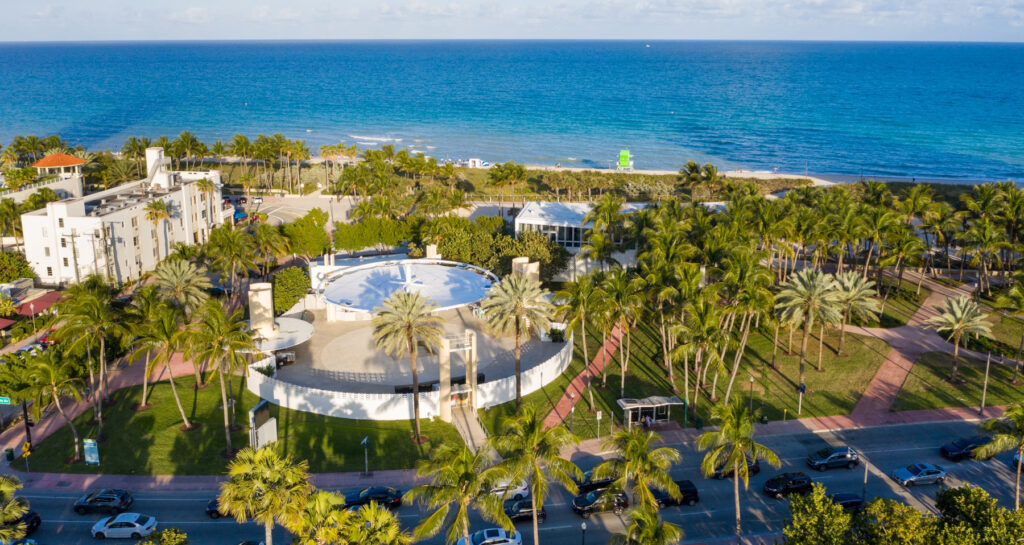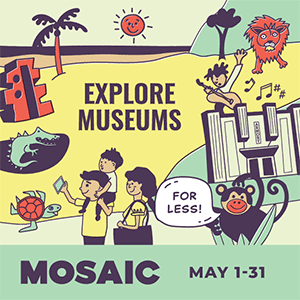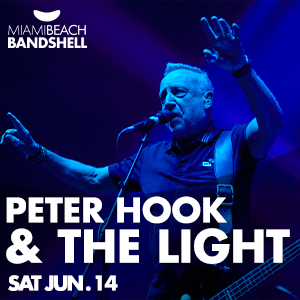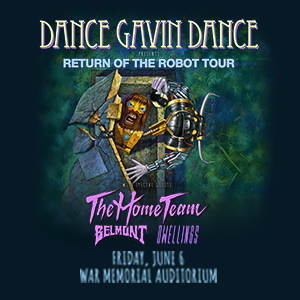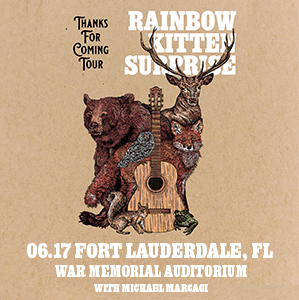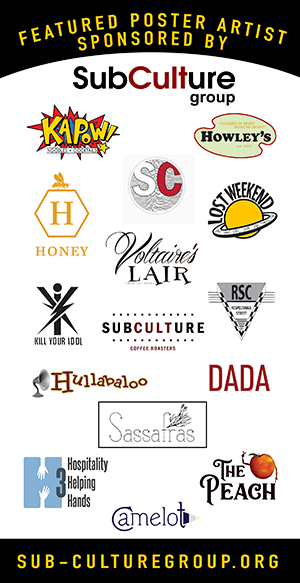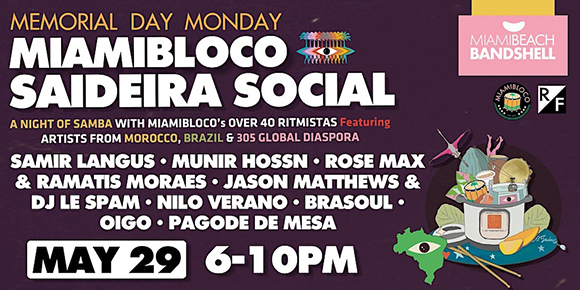
Mention a large gathering of percussionists and inevitably, a patchouli-scented vision of magical drum circles will form. But before you cue djembe-carrying hippies running wild with an untethered sense of rhythm, consider what a unified percussion force can actually bring to the stage. That force is Miami’s own Miamibloco, a 40-plus strong percussion ensemble that blends musical joy with community activism.
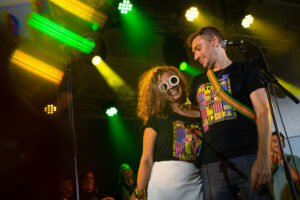
Bira & suOm by April Nicole
Founded in 2017 by Brian “Bira” Potts, a University of Miami Frost School of Music graduate who fell in love with Brazilian music, Miamibloco is a non-profit organization that celebrates and shares Brazilian music and culture. Made up of performers from different backgrounds who share a passion for many things Brazilian, Miamibloco promote cultural understanding and community engagement through music and education.
While putting on classes and concerts featuring traditional Brazilian rhythms such as samba, maracatu, and axé, Miamibloco also reach beyond Brazil’s borders to circle the globe percussively. For their third annual Memorial Day Saideira Social, Miamibloco are rolling out the full squad for a live exploration of Miami’s own musical roots through African, Brazilian and global diasporic rhythms.
“We’re very proud of the fact that we’re presenting a show that is unlike any other,” Potts, the ensemble’s co-founder and musical director, told PureHoney. “We’re a samba percussion community homegrown in the 305, full of some of the most incredible talent in this city. We’re honoring the tradition I’ve been lucky to participate in in Rio but building something undeniably Miami.”
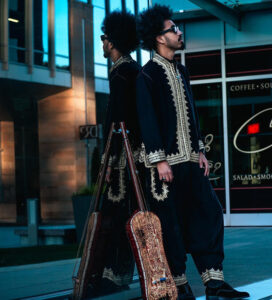
Samir LanGus
“Saideira” is a Brazilian Portuguese term that translates to “last one” or “one for the road,” and this year’s event will feature local acts and internationally acclaimed musicians like Brazilian multi-instrumentalist Munir Hossn, Latin Grammy-nominated duo Rose Max & Ramatis, Jason Matthews from Electric Kif, and DJ Le Spam, among others. The headliner, Samir LanGus of Morocco, is a Grammy-nominated maker of Moroccan Gnawa music, a centuries-old spiritual fusion of instruments and voices that LanGus blends with contemporary influences.
“Being able to produce a show that takes you through the narratives of Gnawa music in Morocco, across the Transatlantic slave trade, and its influence in Brazil and all other Afrodiasporic groups in the Americas feels like part of a healing journey for me as a woman of African heritage,” said suOm Francis, Miamibloco cofounder and director of operations. “Every show has been a new and deeper exploration through cultural exchange, but this time we are going all the way to the roots!”
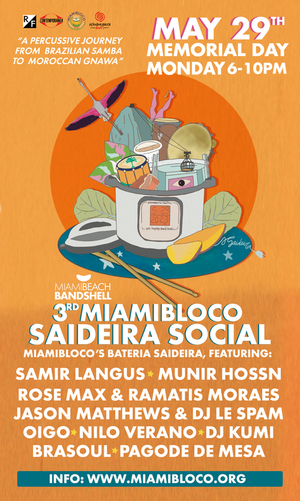 Modern-day Gnawa people are descended from slaves brought to Morocco from west and central Africa. Their music, which LanGus began learning as a child, consists of hypnotic rhythms, call-and-response vocals, and the use of traditional instruments such as the guembri — a three-stringed bass instrument — and krakeb — metal castanets.
Modern-day Gnawa people are descended from slaves brought to Morocco from west and central Africa. Their music, which LanGus began learning as a child, consists of hypnotic rhythms, call-and-response vocals, and the use of traditional instruments such as the guembri — a three-stringed bass instrument — and krakeb — metal castanets.
LanGus is known for his guembri playing and ability to incorporate elements of blues, jazz and rock into Gnawa. He has collaborated with musicians from around the world, including The Brian Jonestown Massacre and the British electronica collective Massive Attack. He champions preservation and promotion through his own organization, Gnawa London, and takes part in educational and cultural initiatives in Morocco and abroad.
“The collaboration with Samir and his group might appear unlikely, but the African influence is the cultural base of so much of Brazil and the U.S.,” said Potts. “Samba and Gnawa have a lot in common – music built around community and groove. They both tap into the healing power of being a small part of a larger thing.”
The percussion-powered African musical diaspora has had a significant impact around the world, especially in Brazil, where it is acknowledged as part of the nation’s cultural heritage and a shaping force in the whole of Brazilian music. Samba, one of the most famous of Brazilian genres, is rooted in the rhythms and percussion instruments that were brought to Brazil by enslaved Africans.
Similarly, North African music is characterized by its distinctive percussion-driven sound, with instruments such as the darbuka and bendir featuring prominently in traditional Moroccan and Algerian music. As LanGus told PureHoney, “It has always been about connecting with our roots, samba and Gnawa came from the same mother, Africa!”
Miamibloco’s Saideira Social takes place 6pm Monday, May 29 at the Miami Beach Bandshell. GET TICKETS! miamibloco.org ~ Abel Folgar
